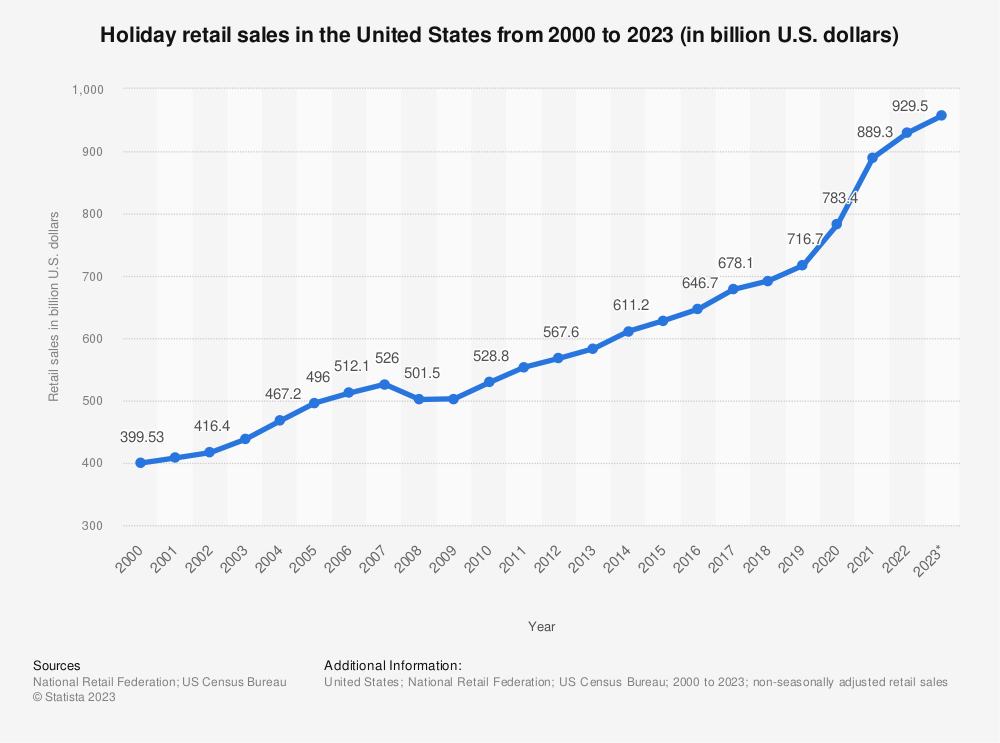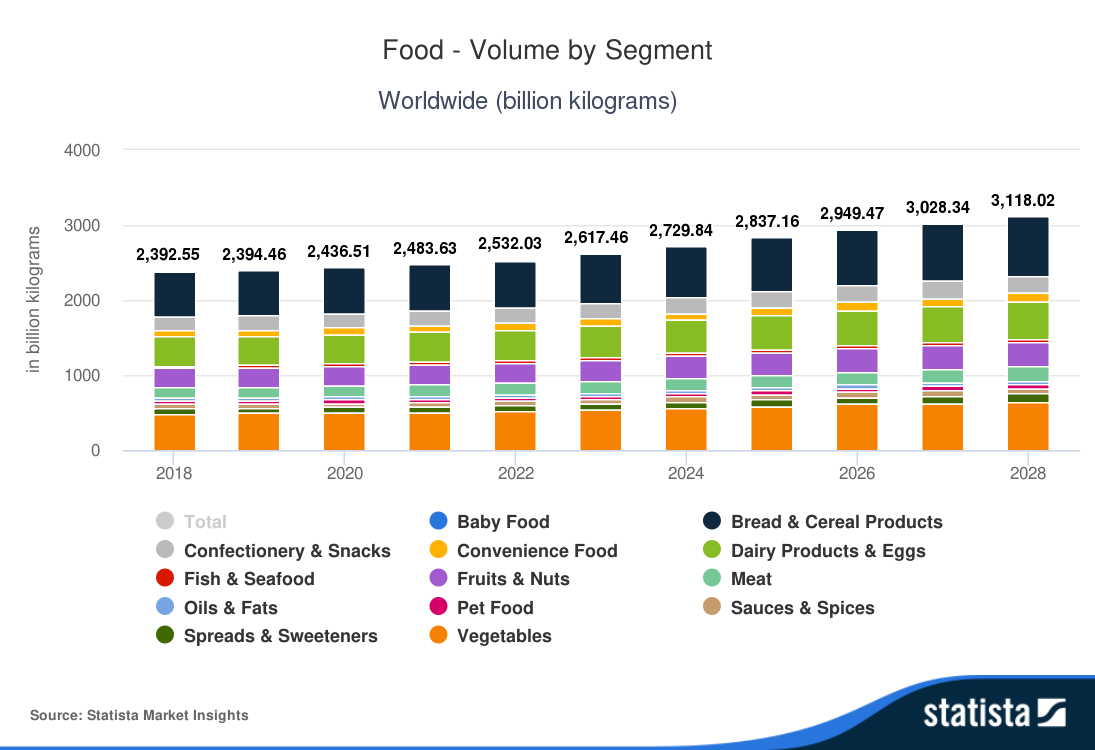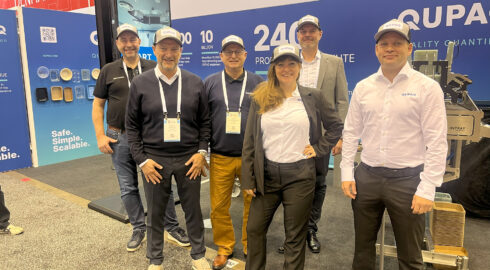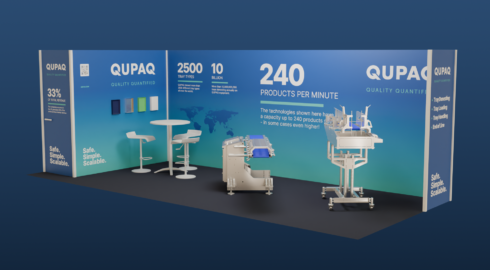Reinforce Competitiveness: Get Ready for the Future Demands
It’s the season for joy – but also the season for increased consumer spending. Learn more about Holiday Peaks, Future Demands, and Inflation in the Food Industry.
WINTER HOLIDAY SEASON
‘It’s the Most Wonderful Time of a Year’
The 2023 winter holiday season forecasts record-breaking spending, despite inflation impacting food prices. Surveys reveal consumer resilience, with 85% of Americans maintaining or increasing their food budget. Explore how automation in food production can address heightened demands, ensure cost-efficiency and reliability while meeting consumer needs and competitive prices.
Tradition, Togetherness, and Increased Spendings
As the holiday season approaches, traditions, family gatherings, and the joy of good food take center stage across cultures worldwide. With Thanksgiving upon us and Christmas, Hanukkah, and New Year’s Eve on the horizon, we look forward to a time that symbolize gratitude, unity, and the pleasure of sharing a home-cooked meal among loved ones. ‘It’s the most wonderful time of a year’, as Andy Williams sang it in 1963.
While being a time of warmth, joy, and comfort, it is also a time marked by increased consumer spending — a season that resonates with elevated expenses on food, events, and holiday gifts. Recent surveys and forecasts predict record-breaking holiday spending this year, showcasing a continued growth compared to the previous year.

Numbers from Statista showcasing the rise in consumer retail spending during the holiday season (Statista, 2023)
Navigating Inflationary Challenges
In 2020, the average price for a 16-pound turkey stood at $26.241. Fast forward to 2023, and the average price has increased by 4.2% to $27.352. Despite prices being on a constant rise, the demand for food remains resilient. In Advantage Solutions’ annual holiday survey3, 85% of Americans anticipate spending the same or more on food this holiday season, with 59% planning to allocate more funds to food. In reports from Statista Market Insights in October 2023, the increase in demands within the food industry highlight the critical need to gear up to meet the future demands.

Numbers from Statista show that the food volume will increase by 19% from 2023 to 2028 forecasting a significant rise in consumer demands (Statista, 2023)
Does this mean that the current inflation doesn’t affect consumer spending?
Not quite. Consumers are aware of inflation’s impact. Forbes Advisor’s survey4 highlights that food and celebratory meals emerge as one of the most significant expenses, resonating with 51% of respondents. While food remains a priority expense, nearly half of holiday gift buyers anticipate adjusting their spending on gifts, leading to reconsiderations in both quantity and scale, according to Forbes Advisor’s survey.
Meeting Consumer Needs with Automation
Despite the challenges, the global demand for food remains strong. In one aspect, the food industry may seem fortunate since many items and services provided are considered necessities. However, this doesn’t guarantee immunity from shifting consumer habits. Consumers consistently seek better value from their food spending, which highlight the need for efficient and cost-effective solutions for food manufacturers to maintain competitive prices.
At QUPAQ, we understand the difficulties faced by food manufacturers, especially during the holiday season. While traditional practices often call for hiring seasonal personnel for manual labor, relying solely on this approach isn’t cost-efficient. Here is why:
As the general price level rises, minimum wage rates increase in effort to preserve the real value of workers’ earnings. This adds complexity, as labor costs represent a significant portion of the financial outlays for food manufacturers. Balancing fair compensation for employees with managing expenses and rising consumer demands. Therefore, establishments need innovative strategies to optimize production while staying competitive and keeping consumer prices in check.
Automation offers a viable solution to this issue. By automating manufacturing processes, food production can efficiently meet demands while emphasizing cost-efficiency, reliability, and flexibility. Automated packaging not only ensures efficiency but also optimizes production uptime, crucial in controlling inflationary pressures and the increasing demands in the future.
Key Takeaways
- Despite inflation and a continued increase in average price, consumer demand for food remains resilient.
- Holiday spending is forecast to reach record levels in 2023, showcasing the importance of planning a head to accommodate the seasonal peaks.
- Surveys indicate that 85% of Americans plan to spend the same or more on food this holiday season, with 59% intending to allocate more funds despite rising costs.
- Automation emerges as a solution for food manufacturers, providing cost-efficiency, reliability, and flexibility in meeting heightened consumer demands both during the holiday season and in general. This will help food manufactures to stay competitive and keep consumer prices in check.
Long-term Planning Is the Key
Also, as the annual holiday peak arrives and consumer needs intensify, food manufacturers should assess their estimated capacities to meet these surges. Is your production line ready to accommodate the peaks, or do you anticipate limitations in meeting demands? Nevertheless, proactive planning becomes essential to prevent bottlenecks and ensure a flexible high-capacity production flow.
Sources:
1: https://www.statista.com/statistics/236843/retail-price-of-turkey-in-the-united-states/
2: https://www.statista.com/statistics/208124/average-price-of-ingredients-for-a-thanksgiving-dinner/
3: https://advantagesolutions.net/wp-content/uploads/2023/11/AdvantageSolutions_PulseSurvey_Holiday2023.pdf
4: https://www.forbes.com/advisor/credit-cards/holiday-spending-trends-2023/
How Can We Help?
Do you want to meet the demands of the evolving market? Innovation and automation are in the core our DNA, and we would love to help you find the right solution for you.




